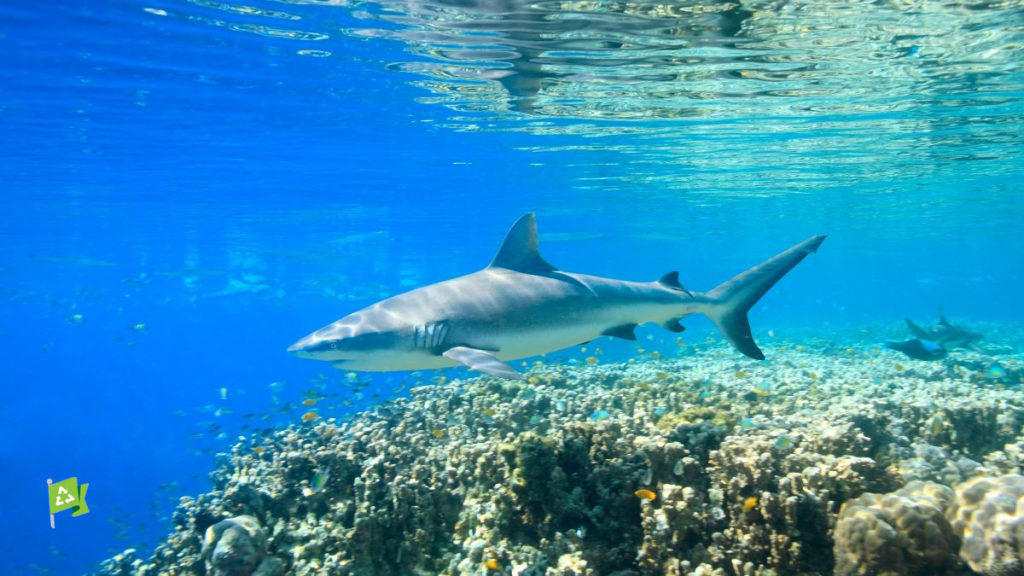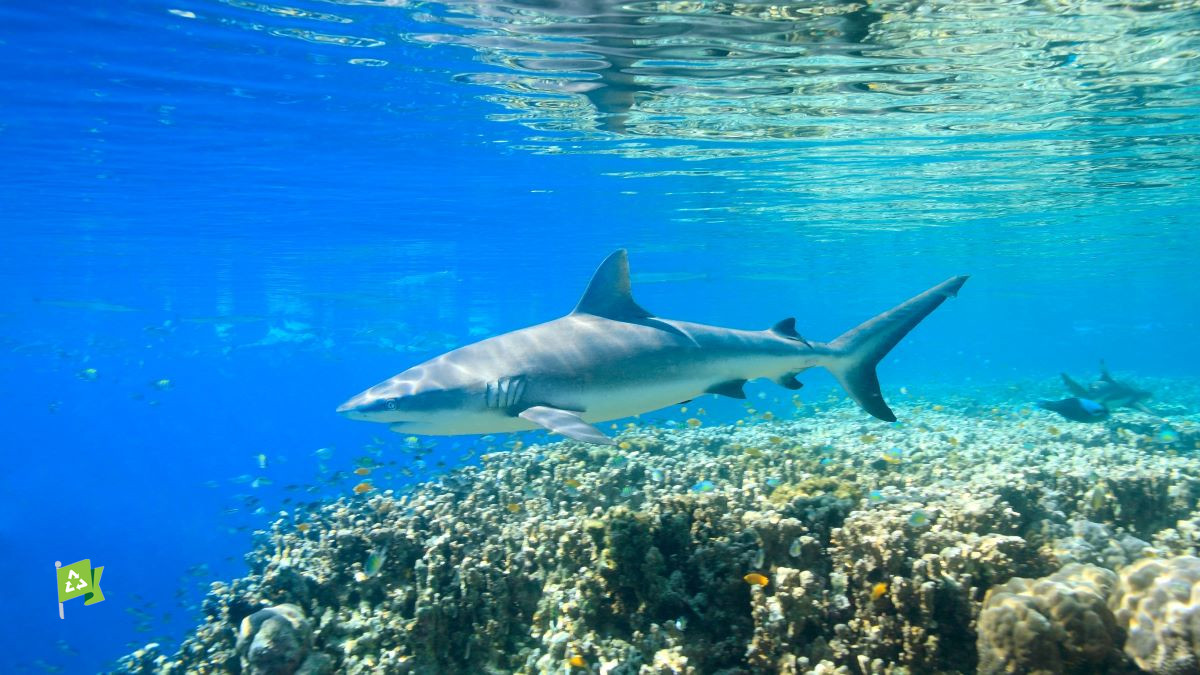
Earth Action: Protect Endangered Sharks

Earth911 is honoring the 52 years of Earth Day with 52 Actions for the Earth. Each week through Earth Day 2023, we will share an action you can take to invest in the Earth and make your own life more sustainable. Although most of us will never experience the ocean beyond standing on its shore, it covers more than 70% of the surface of our planet. Unfortunately, however little direct experience we have of the sea, our actions have a tremendous impact on its ecology. This week, you can act on behalf of the ocean by helping to protect endangered sharks.
Action: Protect Endangered Sharks
Ocean Ecology
There are a lot of ways that human activity harms the ocean, even from afar. Anthropogenic climate change contributes to ocean acidification and is raising ocean temperatures. That is unbalancing aquatic ecosystems by reducing food sources and increasing diseases. Blameless daily activities – like laundry and wearing masks and sunscreen – release nonpoint source pollutants and garbage. All those chemicals, cigarette butts, and pieces of plastic eventually make their way to the sea. There they alter water chemistry and form giant gyres, harming sea life from corals and shellfish to apex predators.
More directly, we harvest the ocean’s wildlife, eating species to extinction. Some species, like tuna, have been the focus of attention for a long time. And resources like Seafood Watch help conscientious diners eat seafood more sustainably. But overfishing is still a huge problem and many endangered or threatened species are not protected.
Sharks
In the U.S., sharks have been partially rescued from their role as Hollywood nightmare fuel by Shark Week, but they have never really been on the menu. In other countries, shark fins are a delicacy. It has led to the horrifying practice of shark finning: catching sharks, removing their fins, and throwing them back in the water to die. Regardless of the method, shark fishing is one of the top threats to shark species. Nearly a quarter of shark species – 100 of 470 – are considered endangered, and total shark and ray populations have declined 71% in the last 50 years.
Requiem sharks make up the majority of the shark fin and meat trade, with 68% of requiem sharks already listed as Endangered and Critically Endangered on the IUCN Red List of Threatened Species. But requiem sharks are one of the least regulated shark families.
Expand Shark Protection
There are a lot of ways that you can help protect our oceans. This week you can help increase protection for endangered and threatened sharks and rays. CITES (Convention on International Trade in Endangered Species of Wild Fauna and Flora) is an international agreement to ensure that international trade in specimens of wild animals and plants does not threaten their survival. Listing a species as endangered under CITES does not automatically protect that species. Individual nations must still enact and enforce their own laws (in the U.S. that’s the Endangered Species Act). But a CITES listing is the first step to global protection.
At the upcoming CITES convention this November in Panama, 19 requiem shark species are proposed for listing under CITES Appendix II – a list of threatened species that require protection through trade controls to maintain a sustainable population. Listing these species could help end the international shark trade. A global letter circulating online will be delivered to key delegates ahead of the conference, to ensure that they know the global public supports their vote in favor of protecting sharks. Read the letter and add your voice to the petition here.